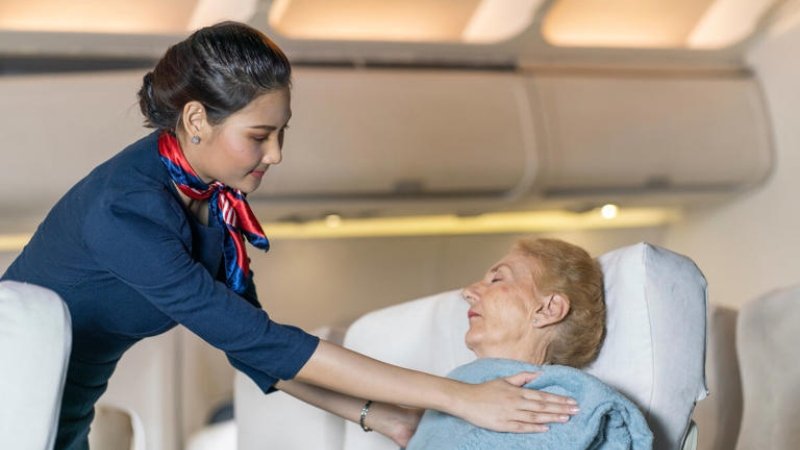Provide a brief overview of what it means when a doctor refuses to assist in a mid-air medical emergency. Explain that such cases are rare and often misunderstood, shedding light on why refusals happen, what regulations are in place, and how airlines respond.
Why Might a Doctor Refuse to Help in a Mid-Air Emergency?
Explain possible scenarios and reasons that might lead to a doctor declining assistance during a flight. Mention common concerns and reasons, including:
Lack of Necessary Equipment
Discuss how, despite medical kits on board, the lack of advanced tools and technology may make effective treatment challenging.
Fear of Legal Liability
Explain how legal implications and the potential for lawsuits influence some doctors’ decisions.
Physician’s Specialization and Comfort Level
Mention that doctors have various specializations and may feel uncomfortable without the right expertise or experience to handle certain medical crises.
Personal Limitations or Medical Conditions
Note that doctors, like any passengers, may have health issues that make assisting risky.
What Are the Ethical Expectations for Doctors During In-Flight Emergencies?
Explore the ethical questions that arise when a medical professional refuses aid. Cover:
The Hippocratic Oath and Its Influence
Provide background on the Hippocratic Oath and discuss whether it obligates a doctor to assist in all settings.
Ethical Principles Versus Practical Concerns
Weigh the principles of care against potential complications and why some doctors might choose not to get involved.
Balancing Professional Duty with Personal Rights
Discuss the balance between a doctor’s professional obligations and their right to prioritize personal well-being.
Understanding Airline Procedures and Responsibilities
Explain how airlines are prepared for medical emergencies, including:
On-Board Medical Kits and Equipment
Describe the standard medical kits available on commercial flights and what tools are typically included.
Role of Flight Attendants in Medical Emergencies
Discuss the role of flight attendants in handling medical crises and the extent of their medical training.
Consulting On-Ground Medical Professionals
Mention how airlines may contact ground-based medical professionals for real-time guidance during emergencies.
Legal Protections for Doctors Assisting in In-Flight Emergencies
Outline legal aspects and protections available to doctors who choose to assist, focusing on:
The Good Samaritan Law
Explain the Good Samaritan Law in aviation, which aims to protect those providing emergency medical aid.
International Variations in Legal Protections
Discuss differences in legal protections across countries and how this impacts doctors’ decisions to help.
Airline-Specific Policies and Agreements
Note that some airlines have policies that clarify liability coverage for medical professionals who intervene.
High-Profile Cases and Public Reactions
Explore some known cases where doctors refused to assist mid-air and analyze public reactions, covering:
Notable Instances and Media Coverage
Describe a few high-profile cases and how media coverage shaped public perception.
Impact on Public Trust and Airline Policies
Discuss how these cases influence public trust in doctors and airlines and whether they lead to policy changes.
Addressing Misunderstandings in Public Perception
Clarify common misconceptions the public may have regarding doctors’ choices in such situations.
Alternatives for Handling Mid-Air Medical Emergencies
Discuss alternative measures airlines are exploring or have implemented to handle in-flight emergencies more effectively.
Advanced Training for Flight Attendants
Mention increased training initiatives for flight attendants in handling medical crises.
Telemedicine and In-Flight Technology
Discuss the role of telemedicine in enabling remote consultations with on-ground doctors.
Expansion of On-Board Medical Kits and Equipment
Suggest enhancements in standard medical kits to support more diverse emergencies.
Conclusion
Summarize the complex decision-making process doctors face in mid-air emergencies, the importance of airline preparedness, and the significance of understanding the medical and ethical aspects involved.
Visit our blog for more Kaz Magzine.
